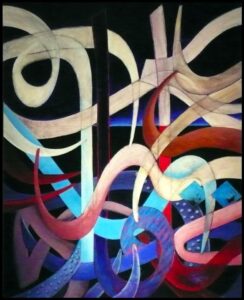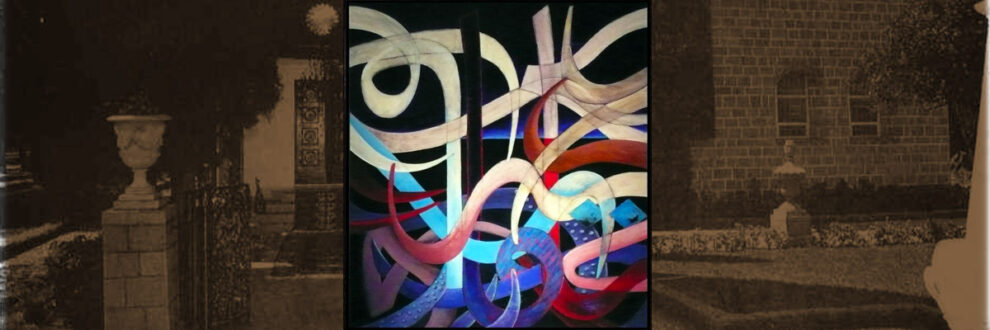 Siyyid Isma’il
Siyyid Isma’il
Born: 1829
Death: 1919
Place of Birth: Nayriz, Iran
Location of Death: Dhil-Hajjih
Burial Location: No cemetery details
A few years prior to his conversion of the Babi Faith, Vahid had settled in Nayriz and there had married Sughra, a daughter of renowned scholar Haji Shaykh `Abdul‑`Ali Nayrizi. From this union a son was born by the name of Siyyid Isma`il in 1255 A.H./1829. During the stormy days of 1850, the mother and the son were with Vahid at the Fort Khajih and immediately after his martyrdom were rescued and sent by Haji Shaykh `Abdul-`Ali to Istahbanat in company of some other family members where they stayed with Vahid’s sister, Jahan Bagum. The other sister of Vahdi, Bibi Batul, who had married Aqa Mirza Murshid, also lived in that town, and for some while they all lived in fear of repercussions of the events of Nayriz.
After a few years, relative security was established and Sughra and her son enjoyed the comfort of that region and benefited from association with Vahid’s family. In fact, Jahan Bagum had a son of her own by the name of Mirza Abul-Hasan who was of the same age as Siyyid Isma`il and she treated them equal in all manners and surrounded them with great affection. She ensured that both boys completed their early education in Istahbanat and for more advanced training in the Islamic sciences were sent to Yazd to enroll in the Madrisih Khan where they stayed with relatives.
In that city Siyyid Isma`il emerged as a celebrated scholar in his own right known as Haji Muhaqqiqul-`ulama. He married a daughter of his paternal uncle, Siyyid `Ali, and returned to Istahbanat where he spent the rest of his days engaged in research and writing dissertations on various aspects of Islamic thoughts. He passed away at the age of 84 in Dhil-Hajjih 1338 A.H./1919.
After the death of his first wife, Siyyid Isma`il had married again and had sons who also became renowned divines in the Istahbanat region.
Siyyid Isma`ils writings are among the best known in the modern Shi`ism and the most important among them are: Hisnul-Hasin dar Sharh Baladul-Amin, a commentary on his grandfather’s important work on statesmanship; Lama`atul-Nur, an exposition of the Light verse of the Quran; Sharh-i Du`ay-i Kumail, an explanation of the prayer attributed to Kumail; Salsabil, (Bombay, 1312 A.H./1894) on mysticism and spiritual ways; Matla`ul-Nur va Manbi`ul-Asrar, (Shiraz, 1317 A.H./1899), a treatise on the science of kalam (exposition)
And now the second story by Dr. Iraj Ayman:
Question:
In Epistle to the Son of the Wolf Bahá’u’lláh mentions a martyr who had committed suicide. Who was this?
Answer:
The person who had committed suicide and is mentioned in the Epistle to the Son of the Wolf is Siyyid Ismail of Zavarih (a small township near Isfahan). He was one of the early believers to the Báb (during the Báb’s stay in Isfahan) whose story is recorded by Nabíl in the Dawnbreakers (p.437). Later on he went to Baghdad. His living quarters was next to the residence of Bahá’u’lláh. He was a devotee to Bahá’u’lláh to the extent that every morning he would take off his green turban (sign of being a siyyid) and would sweep the dust from the footsteps of Bahá’u’lláh by his turban, collecting the dust and throw it to the river.
Bahá’u’lláh in Kitáb-i-Badí’ has related the rest of Siyyid Ismail’s story. Briefly He gives the following account. One day he requested Bahá’u’lláh to grace his residence by His presence. He offered fruits and sweets to his Beloved Master. He expressed extreme lowliness and servitude to the Blessed Beauty and begged Bahá’u’lláh to grant him with spiritual food in order to put his soul in fire. Bahá’u’lláh commanded him to come and seat in front of Him. Then the Blessed Beauty began to speak to him with such words that completely transformed him and filled him with such extreme love and devotion that he completely ignored his own being and everything in this contingent world. Then Bahá’u’lláh adds that the whole world will not be able to describe what went on in that encounter. Being so in love with his Beloved he could not stand the unpleasant behavior of the enemies and those who outwardly claiming to be believers but were practically causing Him to be harmed. So one early morning after sweeping the area around Bahá’u’lláh’s residence took the dust to the nearby river and went to meet with a few of his fellow believers. Then he went to the riverside near the House and in the ecstasy of his love for Bahá’u’lláh and sorrow of what was being done to him committed suicide by cutting his own throat. This action impressed some of the enemies of Bahá’u’lláh to the extent that they changed their attitudes and became friendly towards Him.
Bahá’u’lláh in Kitáb-i-Badí’ has recorded this story and at the end He adds that when Siyyid Ismail was going towards that spot to sacrifice himself all the Angels on High were circumambulating him. In the famous Tablet addressed to the Prime Minister of Ottoman Empire (Lawh-i-Ra’ís) Bahá’u’lláh referring to Siyyid Ismail calls him The Beloved and the King of Martyrs.* (Summarized from La’Alí-yi-Derakhshan, by M.A. Faizi, pp. 195-99)
These two titles were also given by Bahá’u’lláh to the two brothers in Isfahan, Mírzá Siyyid Hassan as the King of Martyrs and Mírzá Siyyid Husain as the Beloved of Martyrs who were martyred by Shaykh Muhammad Baqir surnamed Zi’b (Wolf) by Bahá’u’lláh.
Image:
Art Design by Mehrdad Mike Iman





Add Comment